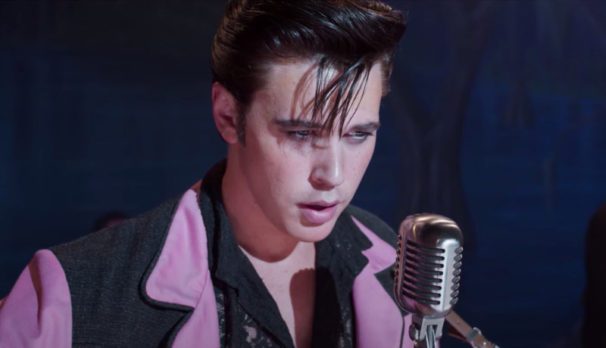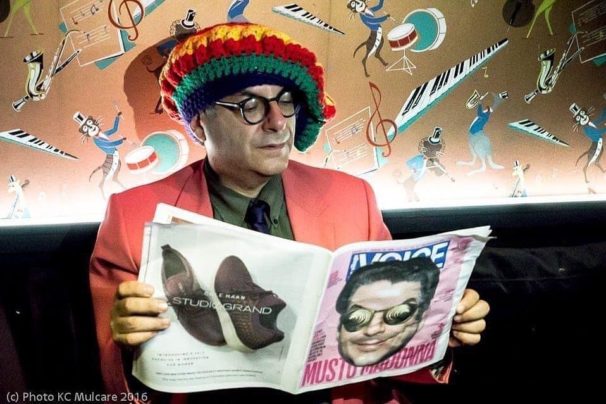
ed. note: artsmeme is pleased to publish the pithy thoughts of journalist Michael Musto on Baz Luhrmann’s runaway hit movie, Elvis, now on screens nationwide. Musto’s long presence in cultural reporting beyond qualify him for his musings about The King. His longtime column in The Village Voice, La Dolce Musto, a compendium of gossip, nightlife, reviews, interviews, and political observations, has spawned books and 5,000 Facebook followers. He continues to report on nightlife, movies, theater, NYC, and LGBTQ politics in entertainment-related publications, websites, and television shows
My thoughts on the new “Elvis” movie. (Warning!!! Spoilers!!!)
I generally give it a thumbs up. It was vivid, visceral, and enjoyable.
But Baz Lurhmann still seems to think that to let a camera stand still for 20 seconds would be corrupt. The result is dazzling–and camouflages the banality of some of checklist-type biopic plotting — but when he finally does let the camera linger on a scene, things improve and you care way more about what’s going on.
I was fascinated by the way Elvis’ ma was portrayed with incestuous overtones, terrified that her boy becoming famous would disrupt her closeness with him.
There are welcome glimpses of Big Mama Thornton, Little Richard, and Mahalia Jackson–artists Elvis revered, while also attaining the heights of success and money only allowed to white artists like himself.
The recreations of Elvis’s kitschy movies are perfection, but I wanted more of that and more about how it demeaned Elvis–and where’s Ann-Margret?
As Colonel Parker, prosthetic-laden Tom Hanks didn’t thrill me at first, but it grew on me the way he presented a sort of cute, continental, “Cuddles” Sakall-type charm as a facade to mask the pure, striving evil. Parker — who’s clearly running from his past — works Elvis to the bone and takes 50% of the proceeds in order to feed his own greed and gambling addiction. He goes along with any attempt to mainstream Elvis (including de-emphasizing the pelvis motions and trying to force Christmas songs on him) and the resulting power struggle is the crux of the film. By the end, the character’s machinations take on a Hitchcockian grandeur and Hanks hauntingly delivers.
As for Priscilla, when she tells Elvis that they haven’t made love in a while, it’s a little weird since they are never shown in any mad passion to begin with. But throughout the film, Priscilla comes off like the voice of reason, telling Elvis she doesn’t care about the money, just about him doing the kind of music he loves, and also warning him that he needs to get off drugs and be a better father to Lisa Marie. She comes off like the anti-Colonel! I’m hardly surprised that she’s been enthusiastically endorsing the movie.
As for Austin Butler, he serves the requisite poker face a lot of the time, but he also gives his heart and soul to the dramatics and the onstage theatrics. (The Vegas breakdown scene truly works.) But I felt he didn’t fully become Elvis until the end, when he’s bloated and croaking out a song, while still managing to exude a superstar’s magic–and then I realized it was footage of the actual Elvis!!!!
Anyway, ignore my quibbles and go see Elvis. It’s not torture (unlike so many 159-plus-minute films) and the theater will surely be air conditioned.

